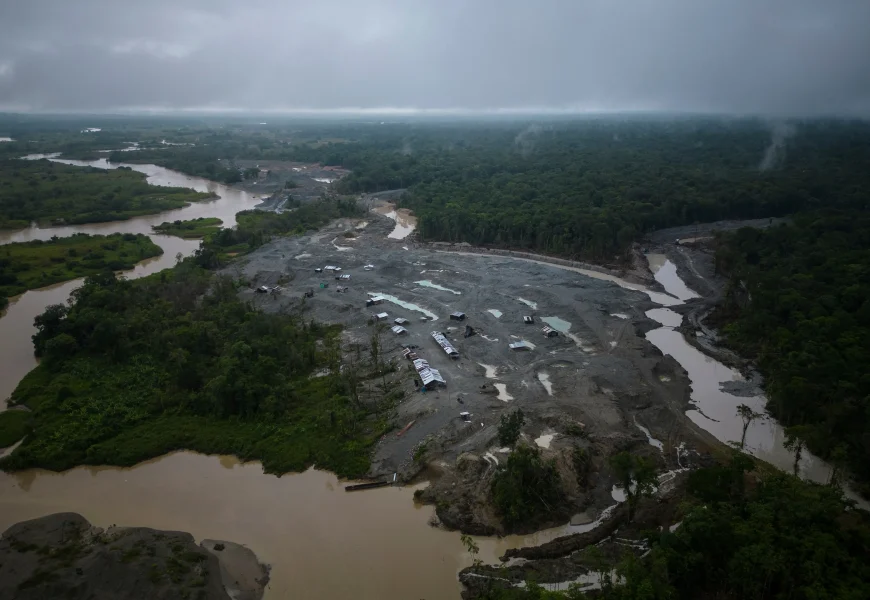BOGOTA, Colombia (AP) – The United Nations warned that mercury contamination from illegal gold mining in Colombia’s Atrato River basin has created a “serious and ongoing human rights crisis,” threatening the health and survival of Indigenous and Afro-descendant communities who depend on the river for food, water and culture.
UN warns Colombia over mercury contamination in Atrato River, calls crisis a human rights emergency
BOGOTA, Colombia (AP) – The United Nations warned that mercury contamination from illegal gold mining in Colombia’s Atrato River basin has created a “serious and ongoing human rights crisis,” threatening the health and survival of Indigenous and Afro-descendant communities who depend on the river for food, water and culture.
In a letter made public on Tuesday, three U.N. Human Rights Council special rapporteurs raised concerns with the Colombian government about insufficient compliance with a 2016 Constitutional Court ruling that recognized the Atrato River as a legal entity with rights to protection and restoration.
“Ten years have passed and we have seen that there has been insufficient implementation and compliance with the terms of that decision,” Marcos Orellana, the U.N. special rapporteur on toxics and human rights, told The Associated Press. “A big part of the problem stems from the presence of organized crime – smuggling mercury, smuggling gold, and corruption in military and police forces.”
The Atrato River, one of Colombia’s largest waterways, winds nearly 500 miles from the western Andes to the Caribbean Sea through the lush jungles of Choco, one of the country’s most biodiverse yet impoverished regions. It’s home to predominantly Afro-Colombian and Indigenous communities that rely on fishing and small-scale farming – livelihoods now imperiled by toxic pollution.


